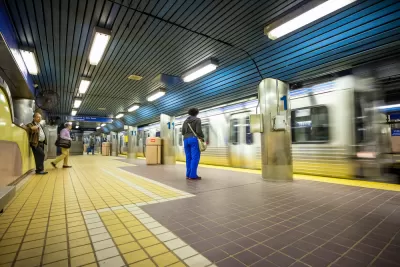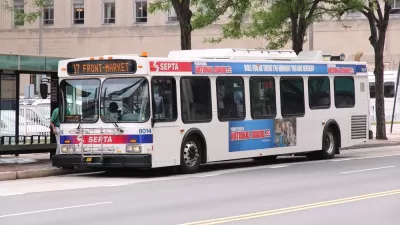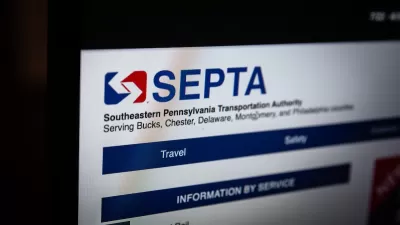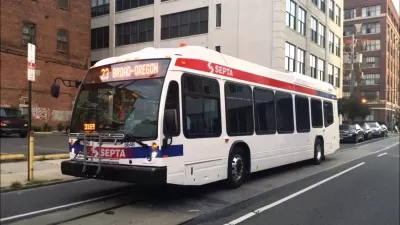The city’s upcoming budget doesn’t include the Zero Fare program, which offers free SEPTA fare to more than 24,000 residents.

Philadelphia Mayor Cherelle Parker omitted the city’s innovative free transit program from its upcoming budget, signaling a potentially abrupt end for a program that awarded free transit fare cards to over 24,000 qualifying low-income residents.
As Kea Wilson explains in Streetsblog USA, the program was the first of its kind in that it identified people who qualified based on other received benefits and sent them unlimited transit fare cards without making them go through an application process.
Of the more than 24,000 people who received that golden ticket as part of the initial two-year, $62-million pilot, the regional transit agency, SEPTA, says 64 percent are still riding today — a rate which proponents call “phenomenal” for a program that some feared would struggle to locate riders grappling with housing insecurity, or who might not believe their good fortune and just chuck their free cards in the trash.
According to Wilson, “A 2023 study showed that free transit doesn't significantly impact household earnings for low-income people, but it does ‘improve individuals’ well-being, and in particular health,’ which can have downstream economic benefits for public health systems, not to mention individuals' ability to access child care, medical care, or even simple quality time with family and friends.” Philadelphia transit advocates say extending the Zero Fare program would help improve SEPTA’s ridership and encourage other ‘choice’ riders who can afford fares but choose to drive to use transit instead.
FULL STORY: Is Philadelphia About to Eliminate America’s Best Free Transit Program?

Maui's Vacation Rental Debate Turns Ugly
Verbal attacks, misinformation campaigns and fistfights plague a high-stakes debate to convert thousands of vacation rentals into long-term housing.

Planetizen Federal Action Tracker
A weekly monitor of how Trump’s orders and actions are impacting planners and planning in America.

San Francisco Suspends Traffic Calming Amidst Record Deaths
Citing “a challenging fiscal landscape,” the city will cease the program on the heels of 42 traffic deaths, including 24 pedestrians.

Defunct Pittsburgh Power Plant to Become Residential Tower
A decommissioned steam heat plant will be redeveloped into almost 100 affordable housing units.

Trump Prompts Restructuring of Transportation Research Board in “Unprecedented Overreach”
The TRB has eliminated more than half of its committees including those focused on climate, equity, and cities.

Amtrak Rolls Out New Orleans to Alabama “Mardi Gras” Train
The new service will operate morning and evening departures between Mobile and New Orleans.
Urban Design for Planners 1: Software Tools
This six-course series explores essential urban design concepts using open source software and equips planners with the tools they need to participate fully in the urban design process.
Planning for Universal Design
Learn the tools for implementing Universal Design in planning regulations.
Heyer Gruel & Associates PA
JM Goldson LLC
Custer County Colorado
City of Camden Redevelopment Agency
City of Astoria
Transportation Research & Education Center (TREC) at Portland State University
Jefferson Parish Government
Camden Redevelopment Agency
City of Claremont





























